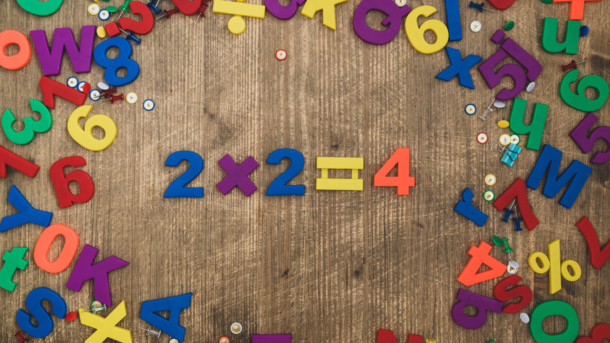Building strong math skills is essential for children as they navigate their education and everyday life. Effective strategies include making math relatable, incorporating it into daily activities, and fostering a positive attitude towards learning. By engaging children with practical applications, parents and educators can significantly enhance their mathematical understanding.
Children often thrive when they see the relevance of what they are learning. Incorporating math into routines, such as cooking or shopping, can make the subject more engaging. Additionally, using games and hands-on activities can create a fun learning environment that motivates children to develop their skills.
Ultimately, the foundation of strong math abilities lies in building confidence and enjoyment in the subject. When children feel supported and see the practical side of mathematics, they are more likely to succeed. Implementing these tips can set them on a path to achieve their full potential in math.
Laying the Foundations of Number Sense
Establishing a strong number sense is crucial for children as they develop their mathematical skills. This involves not just counting but also understanding basic operations, which form the basis for more complex mathematics.
Understanding Counting and Basic Operations
Counting is the first step in developing number sense. Children can start by counting objects around them, such as toys or snacks. This activity helps them recognise numbers and understand their sequences.
Helpful Strategies:
- Use Everyday Objects: Encourage children to count items like fruit during shopping.
- Play Games: Incorporate counting games, such as number bingo or hopscotch, to make learning engaging.
Basic operations like addition and subtraction should be introduced early on. Simple problems using familiar scenarios help ease this transition. For example, if a child has three apples and picks two more, ask how many they have in total.
Establishing the Concept of Addition and Subtraction
Addition and subtraction lay the groundwork for more complex mathematical concepts. Children can grasp these ideas through hands-on activities and visual aids.
Effective Techniques:
- Number Lines: Use number lines to visually demonstrate addition and subtraction. It makes transitions clearer.
- Manipulatives: Objects like blocks can help visualise problems. For example, stacking blocks can show how addition works.
Parents and educators can encourage children to create their simple problems. For instance, asking them to solve “If you have five candies and give away two, how many do you have left?” engages their logical reasoning. This concrete approach solidifies their understanding of basic operations.
Developing Problem-Solving Strategies
Effective problem-solving strategies are essential for building strong mathematics skills. By focusing on key areas such as understanding word problems, exploring relationships, and sharpening mental math abilities, children can enhance their overall problem-solving capabilities.
Tackling Word Problems Effectively
Word problems often challenge students as they require translating text into mathematical equations. Children should start by identifying keywords and phrases, which can indicate the operations needed. For instance, phrases like “in total” suggest addition, while “remaining” indicates subtraction.
Practising with a variety of word problems helps build familiarity. Parents can encourage discussions about each problem, prompting children to verbalise their thought processes. This enhances comprehension and promotes logical reasoning. A structured approach, such as using diagrams or charts, can also aid in visualising the problem and finding a solution.
Exploring Relationships and Reasoning
Understanding relationships between numbers is vital in mathematics. Children can develop their reasoning skills by engaging in activities that highlight these connections, such as using manipulatives or visual aids. For example, a child can explore fractions using pie charts or blocks to see how parts relate to a whole.
Encouraging critical thinking is also important. Asking “why” and “how” questions fosters a deeper grasp of concepts. Games and puzzles that require strategic thinking can solidify these skills. Parents should support their children in recognising patterns, which often simplifies complex problem-solving.
Strengthening Mental Math Abilities
Mental math skills are crucial for quick calculations and everyday problem-solving. Regular practice can significantly improve a child’s confidence and fluency in mathematics. Techniques such as estimation and rounding help simplify numbers, making calculations easier.
Parents can incorporate mental math exercises into daily routines, like during shopping or cooking, where children estimate totals or measure ingredients. Setting goals, such as achieving certain mental math tasks each week, can create a fun challenge. Additionally, introducing timed quizzes can motivate children to improve their speed and accuracy in calculations.
Advancing to Complex Concepts
As children build a foundation in basic arithmetic, they can begin to explore more complex mathematical concepts. Understanding division and introducing geometric thinking are key milestones in advancing math skills.
Progressing Beyond Basics with Division
Division is a critical concept that allows children to understand how numbers interact in more complex ways. This skill expands their ability to solve problems and enhances their number sense.
To introduce division effectively:
- Use Visual Aids: Manipulatives such as counters or blocks help children grasp the idea of sharing and equal groups.
- Relate it to Real Life: Applications, such as sharing snacks among friends, make division relatable and engaging.
- Incorporate Games: Use board games or online activities that involve division to create a fun learning environment.
It’s essential to reinforce division alongside multiplication. This connection strengthens overall understanding and fosters confidence in tackling more difficult calculations.
Introducing Geometric Thinking
Geometric thinking allows children to perceive and interpret shapes, patterns, and spatial relationships. This foundation is essential for later success in geometry and other advanced math topics. To foster geometric thinking:
- Explore Shapes Early: Start with basic two-dimensional shapes such as squares, circles, and triangles. Discuss their properties and real-world examples.
- Encourage Drawing: Hands-on activities that involve drawing shapes or constructing models help children visualise geometric concepts.
- Use Technology: Leverage educational apps that focus on geometry to engage children and provide interactive learning experiences.
Understanding geometry develops logical reasoning and critical thinking skills, which are vital for future math achievements.




